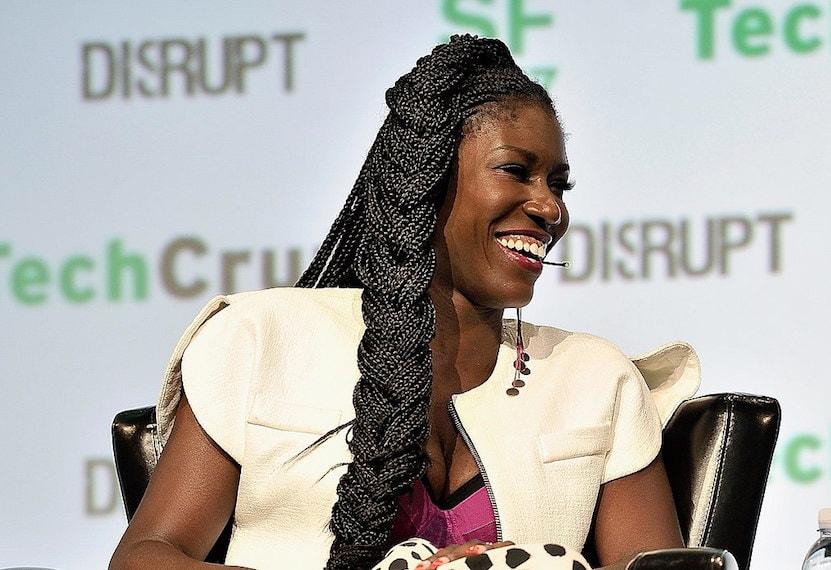
5 Tips for Improving as a Public Speaker in Tech
July 31, 2019
Atlanta’s Black Tech Startup Ecosystem is Gaining Momentum
August 15, 2019Ruben Harris Talks Career Karma Opening Up Access to Coding Bootcamps

Ruben Harris has that swagger that comes with brazen self-belief. He is also chief exec of Career Karma, a Y Combinator-backed San Francisco startup that’s just raised a $1.5 million seed round.
The one-year-old startup matches potential students with the right coding bootcamps. Users complete quizzes to evaluate their preferences (think online vs. in-person or full-time vs. part-time, etc.) on Karma’s fast-growing mobile application.
Typically, when vying for admission, applicants must make it through a two-step interview process, one technical and the other non-technical. Career Karma helps users navigate this with their CK Challenge or 21 days of resources designed to increase their chances of success.
But that’s not all it does. Schools and training programs also use their app to manage the flow of applicants and make offers to the individuals that are getting prepared through it. In fact, schools pay Career Karma a cut if a student joins a bootcamp or ultimately lands a job. In the long run, it helps bootcamps cut down on costs to attract new students since Career Karma acts as a funnel.
“[The schools] also have a login and they’re able to see all the people on Career Karma,” says Harris, who co-founded Career Karma with brothers Timur and Artur Meyster. “As people are moving through the admissions funnels, they’re giving real-time feedback for the schools, so that the schools know how to improve their processes.”
So Career Karma is doing more than delivering people that are ready and qualified to start programs. It’s also helping bootcamps improve operations. Harris says Career Karma has roughly 18,000 registers users, with more than 100 people downloading the app daily.
Climbing Up with Y Combinator
Transplants to the tech industry themselves, the trio participated in the highly-competitive Y Combinator startup accelerator program with their fledgling business idea last winter.
Harris says their focus on the accelerator was mainly iterating the UX experience. “We wanted to create an experience where they love our product,” he says. “Everything that we were doing was optimized around helping them get matched to the right training program, having the support that they need to make it through all the steps that are necessary and really fully understanding that.”
Karma has a brilliant social networking component to the app that is meant to give learners support for the rest of their careers. The small groups of five to ten plus people are placed in a “squad” to give them peer-to-peer support and community. And in addition to helping each other answer questions, they provide inspiration as well.
Harris, who met the brothers in Atlanta before heading out west, has also mastered communicating to different parties, not just customers but investors. He says every aspect of being a part of the cohort was motivating. They benefited from talks from industry leads, being surrounded by peers pushing themselves to high levels, and regular mentorship from group partners that have started building their own companies as well.
Scaling to Become a Bootcamp’s Best Friend
Last month Career Karma raised $1.5 million. Investors included Bay Partners, Backstage Capital, Kapor Capital, and Unshackled Venture, among others. In raising that round, Harris says they want to get the message out that they are a service that is positioned work in tandem with bootcamp programs.
“I’m really focused on making clear that we are not a school,” says Harris. “And we are not trying to compete with schools. We’re trying to help schools become better.”
The new capital is going towards scaling the brand, says Harris. Such as adding more bootcamps to the current roster of participating ones who offer Income Share Agreements for students. Eventually, they want to include every bootcamp possible on the platform. The team is striving to build out the technology to hold that type of capacity. Harris is the Chief Executive Officer. Artur Meyster is the Chief Technology Officer and his brother Timur is the Chief Product Officer.
They’re also investing in talent and producing content on their YouTube and podcast Breaking Into Startups, where their journey began in 2016.
Harris, who comes from a family of educators, explains the platforms are meant to spark action. “Rather than just being media that you can consume, there’s a clear action item that you can take, which is download the app, take control of your career, with other people that are like you,” he says.
Many people know that tech is changing the world but they are unaware of how to take advantage of those opportunities. It requires education and training, he continues. Career Karma wants to be their unbiased go-to. “We are focused on a demographic that’s very hungry,” he says. “We call it this the invisible workforce.”
Preparing the Workforce of the Future for Automation Domination
Earlier this year the McKinsey Global Institute published a report on the future of work over the next 11 years. What economists found was automation will shrink almost 40% of U.S. jobs, which we’ve already been witnessing with the rise of tech. But more notable is that the report finds less-educated workers are most likely to be displaced. People in rural areas will need new skills to offset those that are lost. Harris believes this reconstruction will have to push employers towards retooling nontraditional talent.
“I would argue that there are more talent that is hungrier, that can take advantage of these opportunities if they were exposed to these roles and they knew how to get them,” he says. “And whoever’s able to develop that talent, is able to position themselves well from a staffing perspective.”
MEET THE MILLENNIAL AT THE HELM OF ONE OF THE TOP CODING SCHOOLS IN ATLANTA
“If your a company focused on talent that is visible, that you’re aware of, even if you hire all of that talent there are still open jobs that exist that need to be filled,” he adds. “And so if you want to be competitive and you’re a visionary, you recognize that you’re going to have to build talent in addition to find talent. So whether you want to or not, you’re going to have to invest in the development of diverse and non-diverse talent.”
Breaking into tech from non-traditional backgrounds
Career Karma is not a diversity-focused enterprise. “However because of the way that we communicate. The way we focus on just serving people in general that need it, our community is diverse,” he says.
Karma is serving as a disruptive platform to get non-traditional students into tech. Their data shows the community is mostly women, moms who code squad is the largest squad they have. Users tend to be 25 and older and mostly black and brown. “If everyone on career karma today became software engineers tomorrow, we would have the most black and brown software engineers in the industry, period,” he says.
Harris is positive about the future in the face of rapid automation replacing jobs. He believes Career Karma can help them transition. He is stirred by a quote from Coursera founder Andrew Ng that says, “if you didn’t learn anything today, your skills are now slightly less relevant for your career than yesterday today. So learn everyday.”
Follow Carlyn Pounders on Twitter@CarlynTechTalk







